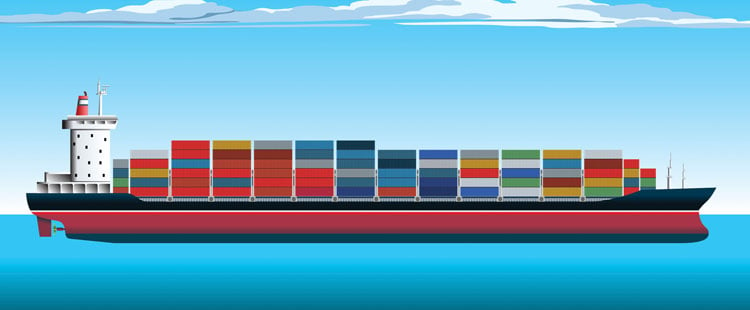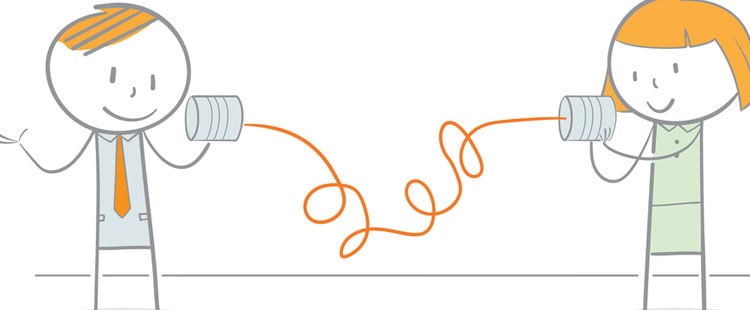
It’s a difficult time in shipping.
Conditions are at their worst in years. Carriers are trying to combat historically low rates by creating an artificial shortage in availability.
This is why it’s so important that you choose a freight forwarder who will be your partner and who has the experience to navigate smooth shipping conditions and rough ones.
A thorough comparison of quotes from potential freight shipping partners is an important step in deciding who to work with, but in this post, we want to zoom out a bit and explain how to compare the companies themselves.
How Much Are You Shipping?

If you ask for a quote from a company, the first question they’ll ask is, “How much are you shipping?”
The shipping industry is dictated by economies of scale. Full container shipments have become a commodity versus the alternative less than container load (LCL) option.
Whether you’re trying to move full containers or LCLs will determine the price range quoted for your shipment. The former means you have enough product to fill an entire container, and the latter means you’re sharing container space with other shipments.
This decision will also hinge on what you’re shipping. LCLs have a rougher transit than full container loads. Every step of the journey kicks off a new game of Tetris where you have to repalletize and store the LCL shipment. This means more hands, more movement, and more opportunities to be lost or damaged.
If you can’t afford delays or lost items, it might be worth looking into what volume you’d need to justify shipping with full containers.
Are you trying to move 50 containers just once this year or 600 every month? Are you shipping enough to fill an entire container, or do you have to go the LCL route? How much of your freight needs to go by air, by land, by sea? These are questions you need to answer ASAP, or, at the very least, bring them with you to ask the companies you evaluate.
Your volume determines what a forwarder charges you. It also influences the level of service you can expect through the process. Your responses will help you form a short list of potential freight forwarders.
Single Point of Contact

Unfortunately, if you’re using a big logistics provider, the white gloves will only come out if you’re regularly putting up big money. This can sometimes lead to problems if something goes wrong.
We live and work in a global economy. Many freight forwarders solve for this by creating a customer service function with offices in different time zones. On the surface, this sounds like a good thing. But in practice, it can be underwhelming at best and costly at worst.
A lot of people we talk to share negative experiences they’ve had being passed from one office to the next. Larger freight forwarders typically provide customers with an “800 number” to reach some random person in a call center. Obviously, that’s less than ideal.
You want someone with a direct line who you can turn to without having to explain the situation repeatedly. You want to have access to someone who knows you, your company, and your cargo. Though you may pay a little more to ship with a smaller company, they won’t send you through a call center obstacle course when shipments don’t go according to plan.
Pushing for a single point of contact will be a good indicator of the type of service you can expect from a freight forwarder. If they aren’t providing you with dedicated account management, you run the risk of a frustrating and potentially costly experience if something goes wrong during transit.
What Happens When Something Goes Wrong?
There is no avoiding the fact that shipping is a risky business. With so many moving parts, it’s not uncommon for something unexpected to occur. Work stoppages, weather, and other unforeseen events that are beyond your control can crop up at any point in the shipping route.
During your evaluation of forwarders, it’s important to ask:
- What happens if a container doesn’t load/get picked up on-time?
- When will I find out if there’s a delay?
- Who is going to contact me if this happens?
- What’s the backup plan?
Some of these issues can be addressed with visibility solutions that are determined up front. You may not need real-time updates from a live person, but you might want regular reports about where your shipment is and whether it’s been delayed. Visibility solutions allow your freight forwarder to either provide you with access to a system you can use to generate reports, or they can create those reports for you. We recommend asking for immediate alerts if your shipment is damaged.
Additional Qualifications
Freight forwarding is influenced by a number of regulatory bodies. It's best to research what types of qualifications or compliance certifications a freight forwarder has received.
There’s a difference between a freight forwarder and a non-vessel operating common carrier (NVOCC). The latter goes through a lot more vetting and has to bear requirements like maintaining a bond issued by the Federal Maritime Commission. If you are dealing with air freight, you’ll want to see if the company you’re vetting is certified by the International Air Transport Association (IATA).
Most of this information can be found on a company’s website, but it’s also worth asking for a face-to-face meeting. Remember, these are the people you’ll be calling on if something goes wrong with your shipment. You want to have an established relationship and know that there are real people behind a company’s name.
For better or worse, it’s not difficult to call yourself a freight forwarder. All you really need is a phone line and a piece of paper. It’s easy to get roped in with a company like this. That’s why it’s important to ask for something more than email exchange and a few phone calls before you choose a freight forwarder.
Shipping is a business built on relationships. A company that’s been around for a century probably has a pretty good ecosystem of contacts, which is crucial when you’re dealing with a volatile industry that faces government regulations, artificial price inflation, and natural disasters.
It’s easy to think that shipping is just about getting something from point A to point B, but a lot can go wrong along the route, and it’s important to choose a freight forwarder that has the contacts and experience to keep your cargo on track.



